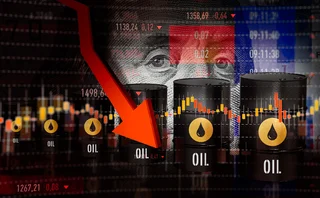
Electric vehicles: a slow-motion car crash for oil firms?
Peak oil demand is seen as inevitable, but disagreement abounds on timing
In 2007, Germany’s mighty electric utilities appeared invulnerable: they had the power of incumbency, oligopolistic market positions and deep political and regulatory support. But within a decade, the top two – RWE and E.on – had lost more than 80% of their capitalisation amid a low-carbon transition which, while anticipated and planned for, proved far more disruptive and value-destroying than their executives had ever imagined.
The same fate could await other giants of the energy world: oil
More on Oil & refined products
Energy Risk reaction: Venezuela and oil sanctions
Energy Risk talks to Rob McLeod at Hartree Partners about the energy risk implications of the US’s control of Venezuelan oil
Energy Risk Europe Leaders’ Network: geopolitical risk
Energy Risk’s European Leaders’ Network had its first meeting in November to discuss the risks posed to energy firms by recent geopolitical developments
US shutdown leaves commodity traders without key data
Commodity traders are ‘flying blind’ without Commitment of Traders reports
Energy Risk at 30: Learning from the past
Energy Risk looks back at the seminal events and developments that have shaped today’s energy markets
Why Iran tensions failed to rattle markets
Despite initial fears, traders say risks were signposted and investors had deleveraged after April
Oil and products house of the year: Macquarie Group
Energy Risk Awards: Bank pioneers innovative deals in illiquid markets, taking on esoteric risk
Podcast: should negative oil prices be allowed?
Did negative oil prices signify the market was operating effectively, or that something was wrong?
Podcast: the future of retail investment in oil
Will negative prices and big losses curb retail investors’ appetite for oil futures over the longer term?








